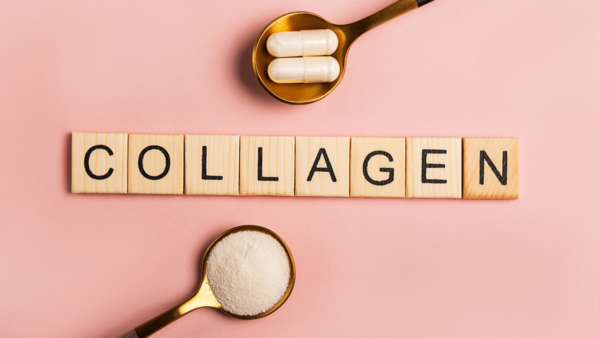Who doesn’t wish to have beautiful and radiant skin? While we put in a lot of effort with skincare routines and products, the secret to youthful, firm skin lies deeper—within collagen. As the most abundant protein in our body, collagen plays a crucial role in maintaining skin elasticity, hydration, and overall health.
Signs of low collagen
Certain signs indicate your collagen level is declining. These include, skin that is wrinkled, crepey, or sagging; hallowing in and around your eyes and face; shrinking, weakening muscles and muscle pains; stiffer, less flexible tendons and ligaments; joint discomfort or osteoarthritis due to damaged cartilage; and loss of mobility due to joint damage or stiffness, among other things. Here are detailed signs of low collagen in your skin:
Wrinkles and sagging skin – Collagen keeps skin firm and elastic; its decline leads to fine lines and loose skin.
Joint pain and stiffness – Collagen supports cartilage; low levels can cause joint discomfort and stiffness.
Slow wound healing – Reduced collagen weakens tissue repair, leading to prolonged healing of cuts and wounds.
Brittle nails – Weak, easily broken, or peeling nails can be a sign of collagen deficiency.
Thinning hair – Collagen supports hair strength; a lack of it can lead to hair thinning and breakage.

Weakened muscles – Collagen is essential for muscle structure, and low levels can contribute to muscle weakness.
Leaky gut and digestive issues – Collagen helps maintain gut lining integrity; its decline may cause digestive problems.
Loss of skin hydration – Dry and dull skin is often linked to collagen depletion.
Frequent bone fractures – Collagen provides bone strength, and lower levels may contribute to bone fragility.
Gum recession and dental issues – Collagen is vital for gum health; low levels can lead to gum problems and loose teeth.
Understanding the role of collagen in maintaining firm, youthful skin
Dr. Bhargavi Uttmani, Consultant Dermatologist at Kaya Limited, Said ,“Collagen makes up around 30% of the body’s protein and is primarily responsible for bone and skin health. Collagen is the body’s building block and is essential for maintaining fitness and wellness.”
“Collagen helps the skin look younger in a variety of ways. Collagen fibers serve as a scaffold, adding strength and structure to the skin. The framework holds the skin firm and prevents it from drooping. In addition, it helps to keep the skin hydrated. It bonds water molecules, keeping the skin plump and hydrated. As an important component of wound healing and tissue regeneration, it serves as the foundation for new tissue formation, enabling faster recovery from injuries and maintaining skin integrity.
Furthermore, good collagen levels help to create a strong skin barrier, which defends against environmental aggressors such as UV radiation, pollution, and viruses,” she adds.
How to boost collagen production with the right diet
According to Dt. Swatee Sandhan, Senior Dietician, Jupiter Hospital , Maintaining healthy, youthful skin isn’t just about skincare—it starts from within. Collagen production naturally declines with age, but the right diet can help slow this process and keep your skin firm and radiant.
Chicken broth – organic chicken broth- is the best simple remedy to improve collagen and skin elasticity.
Broccoli – Interestingly, broccoli has as much Vitamin C as an orange, indicating that it is also high in antioxidants. This healthy vegetable also aids in increasing natural collagen formation.
Berries – If you’re looking for delicious collagen-rich meals for your skin, strawberries, blackberries, or blueberries might be a good choice. They not only promote collagen formation but also aid in antioxidant defense against UV-induced photodamage.
Beans – Beans are an excellent natural source of collagen. They are a protein-rich diet, including the amino acids required for collagen formation. In addition, several of them are abundant in copper, another component required for collagen formation.


